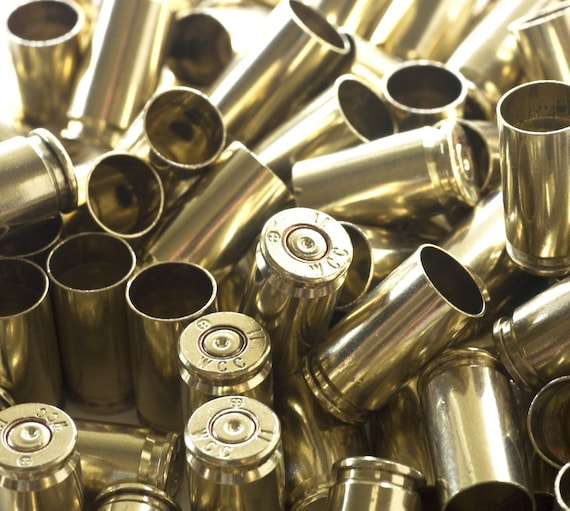
At $75, that was still a very resolvable price for the caliber. They were half reloads, half jacketed bullet factory loads. I did buy 3 boxes of 32-40 Winchester from the same vendor. I would have pulled the bullets and reloaded them to my own specs at that price but I have plenty on hand. Last week, at the Gettysburg show, I passed on a $15 box of nickel cased 32-20 reloads. OTOH, I've seen some odd caliber ammo being priced very reasonably at the local gun shows. We have certainly entered a new world of reality when 38 Special brass becomes near unobtainable. While doing so, noted that most of the stuff they had was out of stock. To price it, I checked Midway and Cabelas for their new and once fired brass prices and asked a little less per case. I was surprised that it went as quick as it did. Priced them at $25 per 250 ct bag with shipping and gave a discount with multiple bags. I had several thousand mixed 38 Special that I couldn't give away or trade but recently sold most of it here in the forum classifieds. Once in a great while I would find some 45 Colt too. That's one of the reasons I pick up my brass and don't feel bad about abusively re-using it, because it's been "pre-inspected" by me.Īnd with 9mm, as has been discussed, just be aware there is more pressure on makers to short-cut the brass quality, so beyond looking for Berdan primers, there's a lot of other inspection and testing to be done.Until recently, there was always plenty of good 38 Special and 9mm brass in the recycle bucket at my pistol club. Even after that, I have magnets on my case feeder that cull out the last of the impostors. I initially inspect all the brass I use multiple times.It's probably OK to pick up brass at public and road-side ranges where people with "race guns" don't go to target practice.Buy or trade with people you know and trust.There's just too many other sources for 9mm brass. Never buy brass from an source you didn't know.I didn't feel bad at all about shoveling up that brass. Since the range made special compensation for all my co-workers, I'd sweep the range and put away targets and other trash. When it was over, the place would be covered in once-fired brass of all types. However, at work I would host 40 person "Lunchtime Shoots" and a local indoor range would reserve an entire 7-lane range for us.

This case is "Glocked" but in truth it probably came from a S&W This 9 Major case head is blown out and will jam in a stock gun That is, the case Head is expanded and when that happens there's really no good remedy. The reason is that 9 Major is shot there, and some 9 Major brass is distorted beyond all limits and cannot be reused. I could pick up as much brass as I want there, but I don't. I belong to a big, outdoor gun club in greater Atlanta that holds all sorts of monthly pistol competitions.

To me this whole question hinges on the term Range Brass.

And in fact, I believe the popularity makes it more of a target to make shoddy copies of it in hopes of making more money, thus the steel and aluminum cases.Īnd, 9x19 Luger being the only popular tapered case ammo, the user needs to be aware that the taper makes it harder to gauge, nearly impossible to repair, and the penalty for non-inspection higher because any abnormality can get the offending round wedged into the tapered chamber. For those of you who reload stranger-fired range brass, do you inspect them as they get on your press, or what steps do you take to ensure casings are safe to load?ĩmm brass is no stronger or weaker than any other brass, it's simply popular. I tumbled them in corn media with nufinish and most of them appear to be once fired (to my newbie eyes).

I plan on using the first pile since they seem to have a better reputation for quality. I already bought a bucket of range brass and have been sorting WIN, FC, *-*, RP, BLAZER, GFL, SPEER, and CBC in one pile (to be honest, they are in their own individual piles.), and the rest in another. I always assumed that most reloaders used range brass but now I'm wondering if most buy new brass. This makes sense to me, but is 9mm one of the safer calibers for reloading fired brass with unknown history? I keep seeing people say they lose 9mm casings before they ever go bad, so I'm assuming this means 9mm casings are super sturdy and reliable. Lyman's reloading handbook seems to be very much against range brass that has been fired by someone else since you don't know what condition it's in. Buy a bucket of range brass and clean it/inspect it What would your recommendation be to someone just getting into reloading 9mm, specifically, and why:ī.


 0 kommentar(er)
0 kommentar(er)
